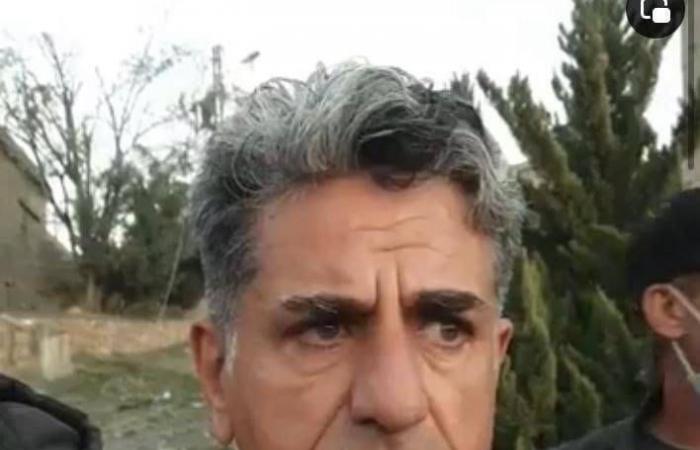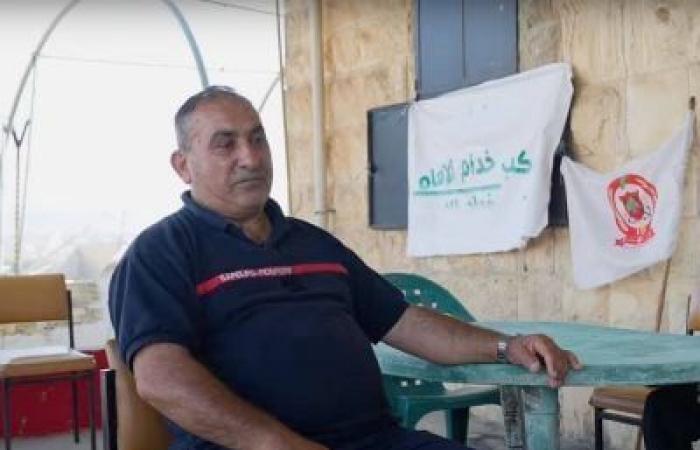War was not a new thing for him. But this one was not like the others: much more violent, much more destructive. He hated her. He called her “barbaric” and “absurd”. Bilal Raad was the head of the general directorate of the Lebanese Civil Defense (DCL) for the caza of Baalbeck-Hermel, in eastern Lebanon. He was 58 years old and the father of a two-year-old little girl whom he would not see grow up: he was killed in the Israeli strike which targeted a Civil Defense center in Douris, in the evening of Thursday, November 14. Baalbeck region. The entire building collapsed, along with the adjacent building. According to Governor Bachir Khodr, 15 dead have so far been identified among the twenty missing. The remains of five people have been recovered and DNA tests have yet to be carried out to confirm their identities. The General Directorate of Civil Defense within the Ministry of the Interior, for its part, reported 13 victims identified so far, including ten employees and three volunteers from other centers in the region, specifying that DNA tests are being carried out. underway to identify pieces of torn bodies.
The Douris strike is a particularly hard blow for the Baalbeck-Hermel region, daily subjected to a deluge of Israeli fire and in dire need of humanitarian resources to deal with it. However, all the victims of the attack are part of the DCL. “Bilal and his team were really very courageous, even though most of them were young volunteers,” says Hikmat Chreif, a long-time friend of the deceased. “He wasn’t afraid at the time of the rescue, but he was very worried beforehand about what might happen. He often said to me: “May God protect us, as long as nothing happens to us!” » While his family had found refuge in Deir el-Ahmar, a neighboring Christian town where many displaced Shiites from the region were able to flee, he remained in Baalbeck, his hometown, to actively contribute to solidarity efforts. “He was very busy all the time. The war monopolized him. It was very difficult to contact him,” says his brother Ihab Raad. “The hardest thing for him was the children. Removing the bodies of the youngest from under the rubble broke his heart, he continued. His first instinct was to hug them. » According to a testimony on the “I must first reach the living; we spend a lot of time searching and digging without knowing if we will find a living or dead person,” he said.
Read also
These Lebanese hospitals out of service or damaged by Israeli strikes
Since Israel launched a vast offensive on Lebanon on September 23, the predominantly Shiite areas of the country – perceived as Hezbollah strongholds and including the Baalbeck-Hermel region – have been systematically bombarded by the Jewish state. . If, at the beginning of the month, the Israeli army had launched a new call for the evacuation of residents of the region, in particular from the localities of Baalbeck and Douris, no warning was communicated on Thursday. In nearly a month and a half, at least 192 rescue workers and health workers have been killed in Israeli airstrikes across the country.
“Indelible imprint”
Friday morning, the governor of Baalbek-Hermel published a tribute to Bilal Raad on the X network. “I used to call you after every raid to follow up on the clearance. And each time, you arrived at the targeted locations before me. Who are we going to call now? Who will remove the rubble? Who will extinguish the fires that burn in the hearts targeted by aggression? » The president of the municipality of Baalbeck, Moustapha el-Chall, for his part saluted in a press release the memory of a man “impulsive and in love with Baalbeck and its inhabitants”.
For the record
“Martyr of national duty”: the Civil Defense of the Tire district has lost its leader
It was in 1986 that Bilal Raad took his first steps in first aid. “After his studies in Baalbeck, he joined the Civil Defense as a volunteer and ended up being hired,” says his brother. He started at the central office, located in Beirut, before returning to Baalbeck, gradually rising through the ranks and becoming one of the regional managers. “He was an extremely polite man, very reliable, who loved people and who was always on the ground. Day and night,” says Fisent Chekieh, head of the regional Civil Defense center for the Bekaa. “He leaves an indelible mark on Civil Defense. We will never forget it,” he promises.
War was not a new thing for him. But this one was not like the others: much more violent, much more destructive. He hated her. He called her “barbaric” and “absurd”. Bilal Raad was the head of the general directorate of the Lebanese Civil Defense (DCL) for the caza of Baalbeck-Hermel, in eastern Lebanon. He…
- -






